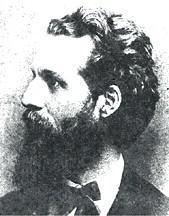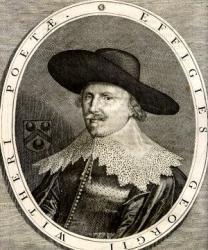
1793 - 1835 Hymnal Number: 213 Author of "I have heard thee speak of the better land" in Song Sermons for General Use and Special Services Hemans, Felicia Dorothea, née Browne, was born in Liverpool, Sep. 25, 1793. In 1800, her father having suffered severe losses in business, removed with his family near to Abergele, N. Wales, where he died sometime after. In 1812 she was married to Captain Hemans, who, on retiring from the army sometime after, removed to Bronnylfa, near St. Asaph. Some years after he left his wife and children and proceeded to Italy, where he died. In 1828 Mrs. Hemans removed to Wavertree, near Liverpool, and in 1831 to Dublin, where she died May 16, 1835, and was buried in St. Ann's Church, Dawson Street, in that city. From 1808, when at 15 she published Poems, to 1834, when her Scenes & Hymns of Life appeared, she produced a great number of poems and other works, including:
(1) The Domestic Affections and Other Poems, 1812; (2) The Sceptic, 1820; (3) Dartmoor, 1821; (4) Vespers of Palermo, 1823; (5) The Siege of Valenciav, 1823; (6) Voice of Spring, 1823; (7) Forest Sanctuary, 1825; (8) Hymns for Childhood, 1827 (English edition, 1834; first published in America); (9) Records of Woman and Miscellaneous Poems, 1828; (10) Songs of the Affections, 1830; (11) Scenes and Hymns of Life (dedicated to the poet Wordsworth), 1834. Then followed (12) The Works of Mrs. Hemans; with a Memoir of her Life by her Sister [Mrs. Hughes]. Edinburgh, W. Blackwood & Sons, 1839, in 3 volumes. Her Poems were collected and published by Blackwood in 1849, and again as one of the Chandos Classics, 1886.
Three distinct ideas pervade Mrs. Hemans's poetry, the Fatherhood of God, Heaven as our Home, and mutual recognition when there. The work of the Atonement has a very subordinate place; and the Holy Spirit is scarcely recognized. The rhythm, even in her most popular pieces, is often disappointing, and a tone of sadness pervades most of her work. The gloom of disappointment and the traces of shadowed memories run like black threads through the web and woof of her productions. As a writer of hymns she holds a subordinate place. The best are "Answer me, burning stars of light," "Calm on the bosom of thy God," “Come to the land of peace," and "Fear was within the tossing bark." [Rev. James Davidson, B.A.]
Mrs. Hemans's hymns which have come into common use include;—
1. Answer me, burning stars of light. Trust in God. Written after the death of a sister-in-law, and published in her Records of Woman, &c, 1828, p. 242, in 4 stanzas of 8 lines. (P. Works, N.Y., 1828, vol. ii. pp. 144, 268).
2. Calm on the bosom of thy God. Death and Burial. This hymn appears in the closing scene of her dramatic poem, The Siege of Valencia, 1823, p. 235, in 2 stanzas of 4 lines. (Works, vol. iii. p. 379). It is supposed to be sung over the bier of Ximena, daughter of Gonzalez, the Governor of Valencia, during the final struggle of the siege. Mrs. Hemans subsequently added a third stanza ("Lone are the paths, and sad the bowers"); and in this form it is published separately as "A Dirge" in her Works, vol. iv. p. 330. It is one of the best known of her hymns.
3. Child, amidst the flowers at play. Hour of Prayer. This is given in her P. Works, 1828, vol. ii. p. 85, amongst the "Miscellaneous Pieces," in 3 stanzas of 8 lines, as a hymn for The Hour of Prayer. Dr. Martineau in his Hymns, &c, 1873, dates it 1825.
4. Come to me, dreams [thoughts] of heaven. Aspiration. Appeared in her National Lyrics, 1834, p. 251, and again in her Works, 1839, vol. vii. p. 88.
5. Come to the land of peace. The Angel's Greeting. Published in her Works, 1839, vol. vi. p. 186.
6. Earth! guard what here we lay in holy trust. Burial. Given in her Works, 1839, vol. iv. p. 327. This is a poem, and not a hymn.
7. Father! that in the olive shade. Gethsemane. Written at the death-bed of her mother, Jan., 1827, and published in her Hymns for Childhood, in 4 stanzas of 4 lines, as a Hymn by the sick-bed of a Mother. (Works, 1839, vol. vi. p. 147.) Sometimes as "O Thou, Who in the olive shade."
8. Father, Who art on high. Prayer. This is part of her "Cathedral Hymn," published in her Scenes and Hymns of Life, 1834. (Works, 1839, vi. p. 142.)
9. Fear was within the tossing bark. Stilling the Tempest. This hymn appeared in her Hymns for Childhood, 1827; her Poetical Works, N. Y., 1828, ii. p. 124; and her Works, 1839, vol. iv. p. 325.
10. He knelt, the Saviour knelt and prayed. Gethsemane. This hymn appeared in The Almut (an annual) 1n 1825, and her Poetical Works, N.Y., 1828, ii. p. 125. It is also introduced in her dramatic poem, The English Martyrs: a Scene of the days of Queen Mary, published in her Scenes and Hys. of Life, 1834, p. 16. A betrothed couple are condemned to death: but are allowed a short intercourse before execution. This they employ in prayer and the singing of this hymn, which is based upon the sacred scene in Gethsemane. "The English Martyrs" is the opening piece of the Scenes and Hymns of Life, 1834. (Works, vii. p. 130.)
11. I hear thee speak of the better land. Heaven. Published in her Poetical Works, N. York, 1828, ii. p. 193, and her Songs of the Affections, 1830, p. 225, in 4 stanzas of 7 lines, and headed “The Better Land." (Works, 1839, vi. p. 123.) Popular as a sacred song, but not much used as a hymn.
12. Leaves have their time to fall. The Hour of Death Published in her Poet. Works, N. Y., 1828, ii. p. 114, and in her Forest Sanctuary , 2nd edition, 1829, p. 276, in 10 stanzas of 4 lines. (Works, 1839, iv. p. 177.) It is usually given in an abbreviated form.
13. Lowly and solemn be Thy children's cry to Thee. Burial. This hymn, in 9 stanzas of 6 lines, forms the closing portion of her poem on The Funeral Day of Sir Walter Scott. [He d. Sept. 21, 1832.] The poem was given in her Scenes and Hymns of Life, 1834, p. 99. (Works, vii. p. 178.) In an abbreviated form this Burial hymn is in extensive use in Great Britain and America, and is found in more hymn-books than all the rest of Mrs. Hemans's hymns put together.
14. No cloud obscures the summer's sky. Ps. xix. Appeared in her Hymns for Childhood, in 10 stanzas of 4 lines, and entitled “The Stars." (Works, 1839, iv. p. 253.) It is usually given in an abbreviated form, beginning with stanza ii., "Child of the earth, Oh lift thy glance."
15. Now autumn strews on every plain. Harvest. One of her juvenile pieces, published in her Poems, Liverpool, 1808, p. 94, as a "Harvest Hymn."
16. O lovely voices of the sky. Christmas Carol. Appeared in her Hymns for Childhood, 1827, in 3 stanzas of 8 lines, and her Poet. Works, N. Y., 1828, ii. p. 123. (Works, v. p. 307.
17. Praise ye the Lord on every height. Ps. cxlviii. Published in her Hymns for Childhood, in 7 stanzas of 4 lines. (Works, 1839, iv. p. 264.)
18. Saviour, now receive him. Burial. Scenes and Hys. of Life, 1834, p. 70, is a hymn entitled, "The Funeral Hymn" in the Burial of an Emigrant's Child in the Forest. It begins "Where the long reeds quiver." This extract opens with stanza ii. altered.
19. The breaking waves dashed high. Landing of the Pilgrim Fathers. Published in her Records of Woman, &c, 1828, p. 261, in 10 stanzas of 4 lines, and in her Works, 1828, p, 261, "The Landing of the Pilgrim Fathers in New England." (Works, 1839, v. p. 280.) Popular as a sacred song, but not much used as a hymn.
20. The Church of our fathers so dear to our souls. The Holy Church. This hymn has not been traced to date. Snepp, in Songs of Grace & Glory, says 1834.
21. The kings of old have shrine and tomb. The Graves of Martyrs. In The Forest Sanctuary, 2nd edition, 1829, p. 284, "The Graves of Martyrs" in 7 stanzas. Also Poet. Works, N. Y., 1828, ii. p. 150.
22. Where is the tree the prophet threw? Faith. Appeared in her Poet. Works, N. Y., 1828, ii. p. 170, and headed "The Fountain of Marah." Also in her Works, 1839, vi. p. 176.
-- John Julian, Dictionary of Hymnology
================
Hemans, Felicia D., p. 509, i. No. 11, "I hear thee speak of the better land," and No. 12, "Leaves have their time to fall," appeared in J. Curtis's Union Collection, 1827, p. 274, i., and then in her Poetical Works, 1828.
--John Julian, Dictionary of Hymnology, New Supplement (1907)
Mrs. Hemans





